
“When choosing ERP software in Bangladesh, focus on how well the system fits your day-to-day needs. Start by listing your most time-consuming tasks across departments like sales, accounting, inventory, and HR. Then look for ERP platforms that offer local support, simple interfaces, and only the modules you actually need. A good ERP should solve problems without making your work harder.”
If you’re running a business in Bangladesh, you’ve probably heard of ERP. Maybe from a supplier. Maybe from someone in your industry. Or maybe in a Facebook group where someone said, “You need ERP to grow.”
But what is ERP, really?
To most entrepreneurs, ERP sounds like something meant for big factories or IT-heavy companies. Something expensive. Something complex. But the truth is — it’s not.
Many small businesses in Bangladesh still rely on paper ledgers, spreadsheets, and WhatsApp to manage their daily work. Sales in one place. Inventory somewhere else. HR and accounts in someone’s head.
That works for a while. Then it doesn’t. This guide breaks ERP down simply. No jargon. No buzzwords. Just what you actually need to know.
Most business owners don’t start their day thinking about software. They think about deliveries, payments, missed calls, and team issues. ERP helps clear some of that chaos.
Here’s how:
You stop repeating work.
Instead of entering the same data in multiple places, your sales, inventory, and accounts update together.
You know what’s going on.
You don’t have to ask your manager how much stock is left — or wait until the end of the day for numbers. It’s all there, live.
Your team works better together.
No more calls asking “Did the order go out?” or “Is that paid?” Everyone sees what they need to, based on their role.
Reports don’t take hours.
You don’t have to open five sheets to know what’s happening. ERP gives you clean summaries without asking your accountant to make one.
There’s a common misconception that ERP software in Bangladesh is only for big companies with 50+ employees and a dedicated IT guy. That’s not true anymore. In Bangladesh, small businesses are using ERP to fix everyday problems.
Here’s who it works for:
A local store owner who needs to track sales and restock.
A clothing factory managing inventory, orders, and worker payments
A small digital agency juggling clients, invoices, and HR
Online sellers who want to sync stock and orders in one place
Any growing business that’s tired of asking: “Who has that info?”
You don’t need to be “big” to use ERP. You just need to be busy and want less mess. That’s exactly why software like Biznify was made: for people running real businesses, not tech teams.
You get back time. The more your system handles, the less you have to chase people, data, or updates. For many SMEs in Bangladesh, this is why ERP becomes the first real investment in software, not for show, but for sanity.
ERP isn’t one giant tool. It’s made of smaller parts — called modules — that handle different parts of your business. You can start with just what you need. Here are the ones most Bangladeshi businesses begin with:
From bills to bank entries, the accounting module keeps track of money coming in and going out more missed payments, or forgotten invoices.
You always know what you have, what’s selling, and what needs to be ordered. Inventory module helps you avoid both overstocking and stockouts.
WIth this module you keep employee details, manage attendance, and calculate salaries in one place. Forget spreadsheets. No more last-minute math.
Track customer orders, follow-ups, and sales records. See which deals are pending, who to call next, and what was promised.
You don’t need to ask someone to make a report. The system does it for you — whenever you need it.
Many companies using Biznify begin with inventory and accounts, then add more as their teams and processes grow.
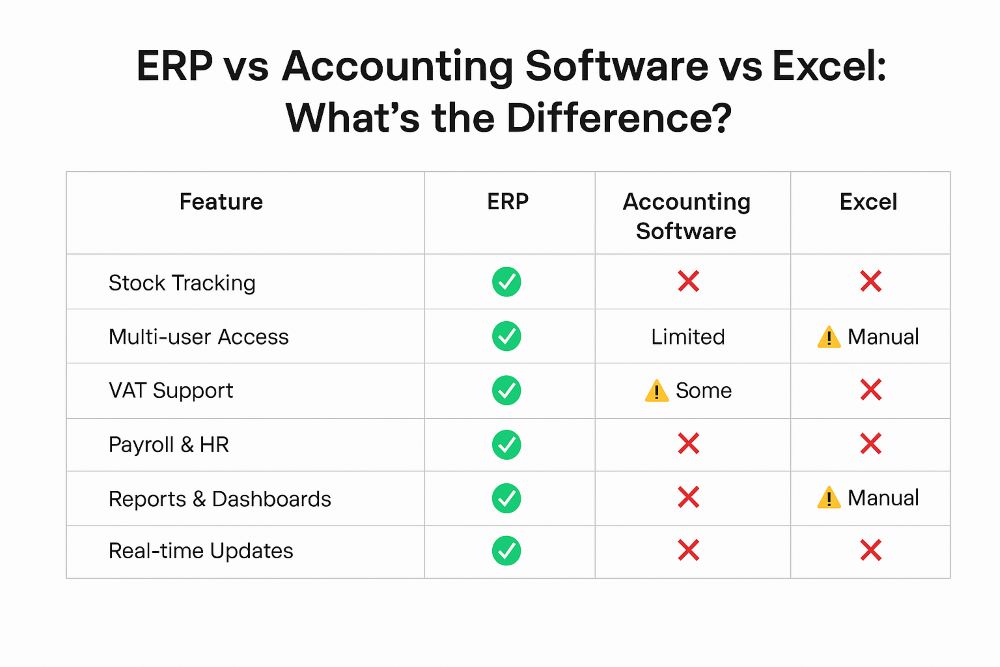 Common Signs You Might Need ERP
Common Signs You Might Need ERPSometimes, it’s not about growing fast — it’s about not falling behind. You might not think you need ERP yet. But small problems tend to build up when tools don’t talk to each other. That’s when businesses start looking for something better.
If your team spends a lot of time updating the same data in different places, that’s one early signal. If your sales team is checking stock by phone or someone’s manually tracking leave days in a notebook, you’re already losing time.
Many businesses reach a point where they can’t see accurate numbers unless they chase people or check five different files. That delay causes mistakes. Missed deliveries. Unpaid invoices. Wrong orders. It adds up.
Another clear sign? You rely heavily on one person to manage operations. If they’re out sick or leave the company, things slow down — or stop completely.
ERP doesn’t fix everything overnight. But it gives you structure. It replaces scattered tools with a single system — so the work continues, even when people change.
Starting ERP doesn’t mean switching everything overnight. Most businesses begin small — just fixing one or two pain points.
You might start with inventory and accounting. Or maybe just sales tracking. The key is to focus on where your current process is falling apart.
Once you’ve picked what matters most, the next step is setup. A good ERP provider will help you migrate your basic data: products, customers, suppliers, employees. You’ll get user logins for your team — each person sees only what they need.
There’s usually a short learning curve. A few days of training. Maybe a week of adjustment. But after that, things settle. Workflows become faster. Mistakes go down. Reporting gets easier.
If you’re using a local platform like Biznify, you won’t need to figure it out alone. Setup, support, and onboarding are handled in Bangla, with real people — not overseas chatbots.
The goal isn’t to get everything perfect on day one. It’s to replace the mess with something you can grow with.
When choosing ERP, one of the first decisions you’ll make is: cloud or offline? The difference isn’t just technical — it affects how you work every day.
Cloud ERP runs online. You don’t need to install anything on your office computers. You just log in — from anywhere, using any device.
For many SMEs in Bangladesh, this is the most practical choice. It doesn’t require an IT person. You don’t worry about backups, servers, or upgrades. The vendor handles all of that.
If you have a stable internet connection, cloud ERP is usually faster to start and easier to maintain.
Offline systems are installed on your company computers or server. You control the data storage. You don’t depend on internet access.
Some businesses prefer this for internal control or security reasons. But you’ll need IT support, and updates or backups are your responsibility.
It can work well if your operation is limited to one location and you have tech support in-house.
Most small businesses don’t have full-time IT teams. They need software that runs without hardware headaches.
That’s why cloud ERP is now the default for many growing companies, especially those with remote teams or multiple branches.
Platforms like Biznify offer cloud-based ERP that’s hosted in Bangladesh. That means faster access and local support, without server maintenance.
If you're starting fresh, the cloud is usually the safer, simpler choice.
| Model | Price Range (BDT) | Common Features Included | Best For |
| Monthly (SaaS) | ৳1,000 – ৳25,000/month | Cloud hosting, updates, support, modular use | SMEs, startups, retail chains |
| One-Time License | ৳2,50,000 – ৳20,00,000+ | Lifetime access, self-hosted, optional support | Manufacturing, govt., large orgs |
Over 70% of new SME ERP adoptions are SaaS-based (monthly).
Enterprises still prefer one-time due to data ownership/control.
Biznify offers lifetime license on-request for large clients, but its standard pricing favors monthly — starting around ৳1,000.
Most businesses hesitate to adopt ERP because they think it has to be all or nothing. That’s not true.
You don’t need to launch all modules at once. You can begin with just what you need today — maybe inventory and accounts — and add more later.
This approach works especially well for SMEs in Bangladesh. Your team can learn gradually. Your data stays clean. And you avoid the mess that comes from rushing too fast.
The key is to pick a system that doesn’t force you into unnecessary features or expensive bundles.
It should grow with your business, not outpace it.
That’s why platforms like Biznify let you start with a simple monthly plan — then expand as your needs change.
Whether you’re running a retail shop, managing a factory floor, or just trying to stop using ten different tools, ERP is no longer out of reach.
Sometimes, starting small is the smartest move you’ll make.
Look for ERP software that matches your day-to-day needs, offers local VAT compliance, supports Bangla if needed, and provides strong after-sales support from local vendors.
Yes, cloud ERP is ideal for most SMEs due to lower upfront costs, easier updates, and anytime-anywhere access. On-premise is better for companies with strict compliance or data control needs.
ERP pricing typically ranges from ৳1,000/month to ৳10,000/month, depending on features, number of users, and whether you choose cloud or on-premise deployment.
Local ERP vendors understand Bangladesh’s business needs, VAT structure, and language requirements. Support is also faster and more aligned with local compliance updates.
Yes, most ERP solutions like Biznify allow you to choose and modify modules to fit your business process without unnecessary complexity.
You don’t need the most popular ERP. You need the one that works for your business. Whether you're handling five employees or fifty, the right ERP will make daily work easier, not harder. It should match your business size, team skills, and the way you already operate. Don’t pick software just by name or feature count. Focus on what you need today — and what you might need tomorrow.
For most small and growing businesses in Bangladesh, local platforms are a better fit. They speak your language, follow your rules, and offer real support when you need it. If you're ready to start looking, begin by listing your biggest bottlenecks. Then choose a system that solves them — not one that creates new ones.
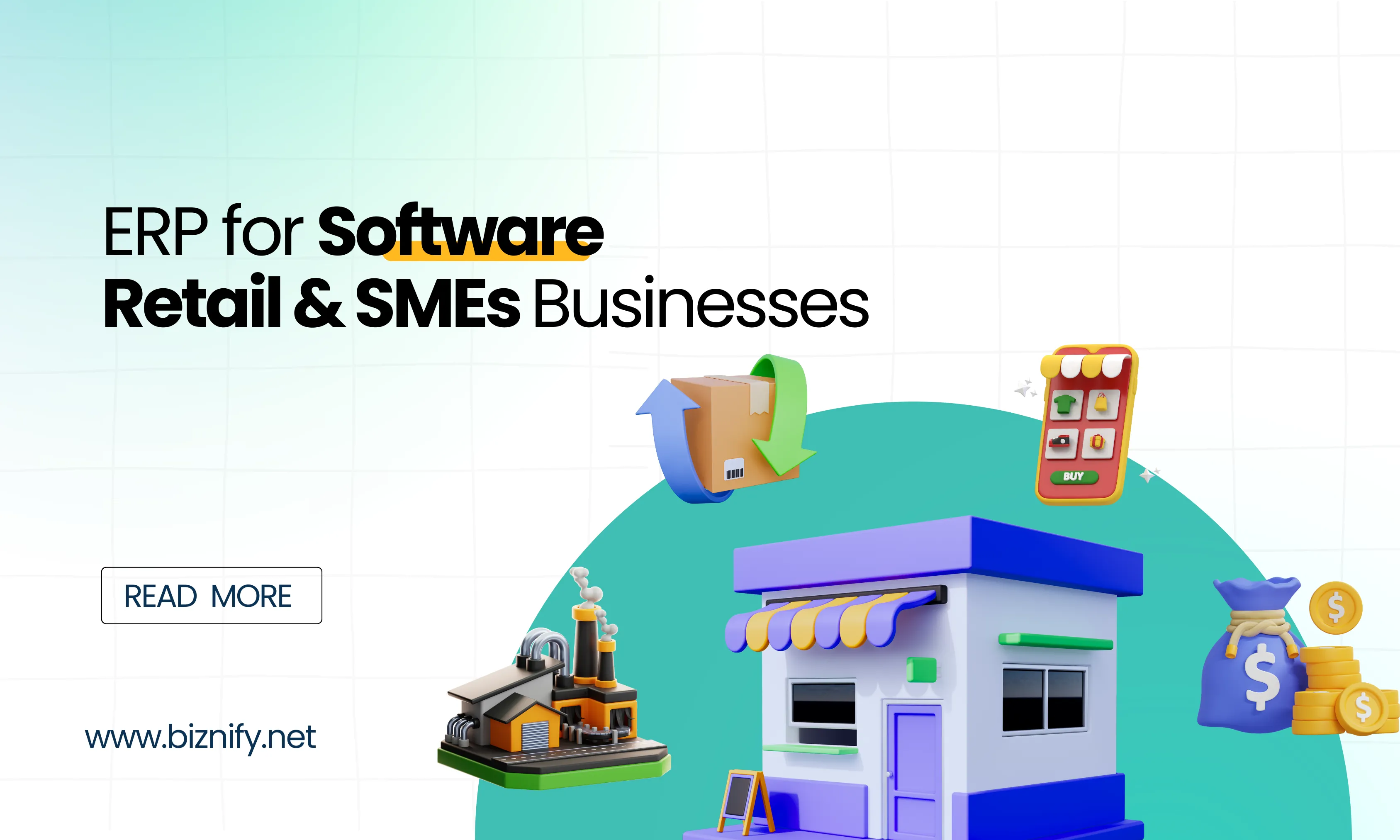
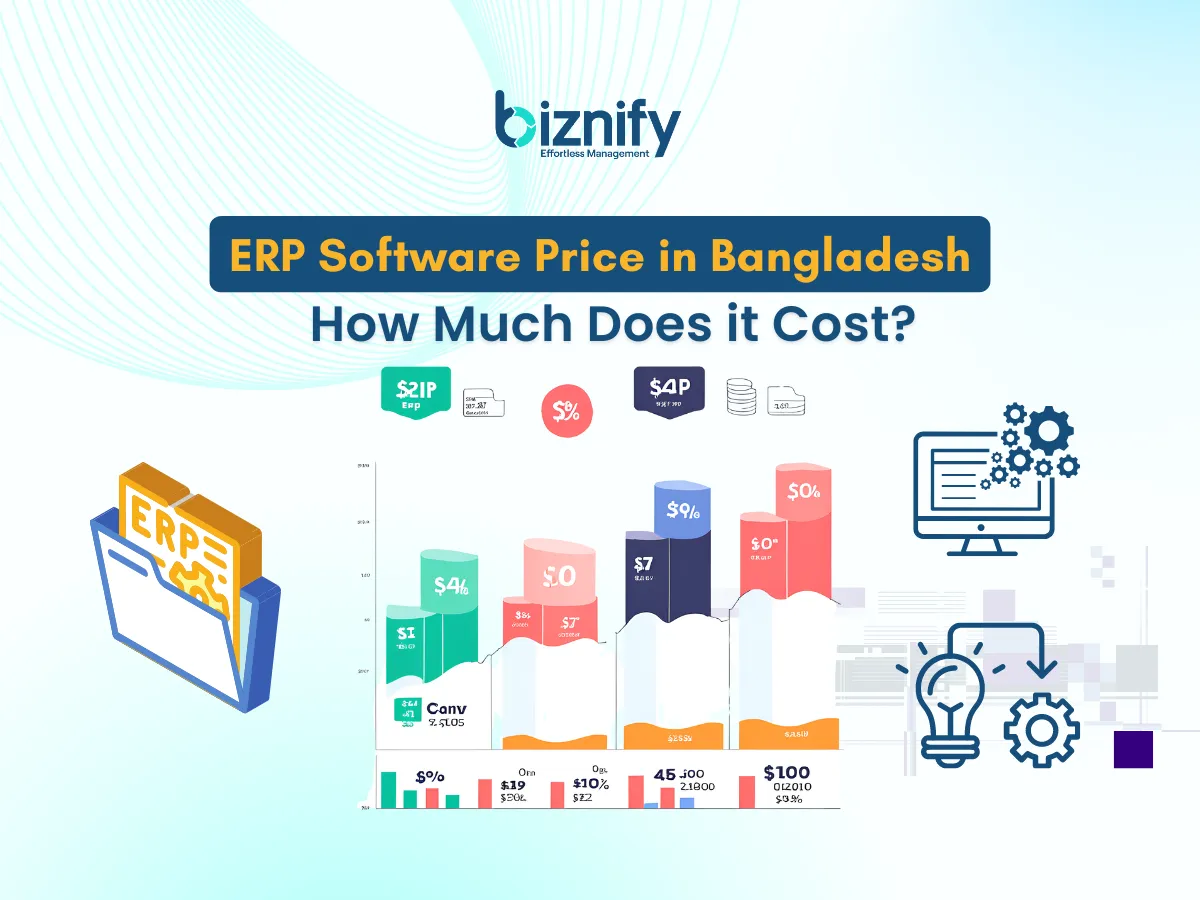
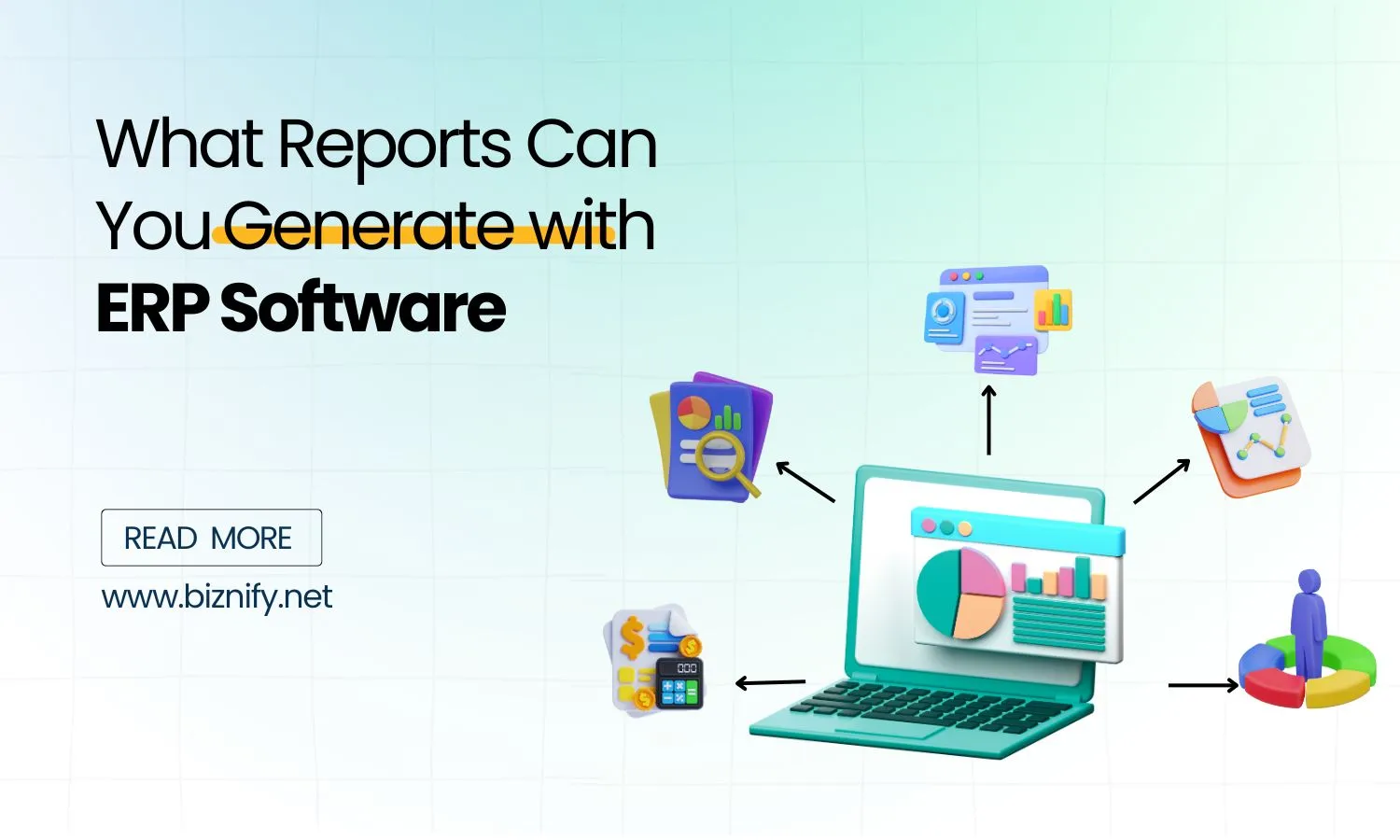
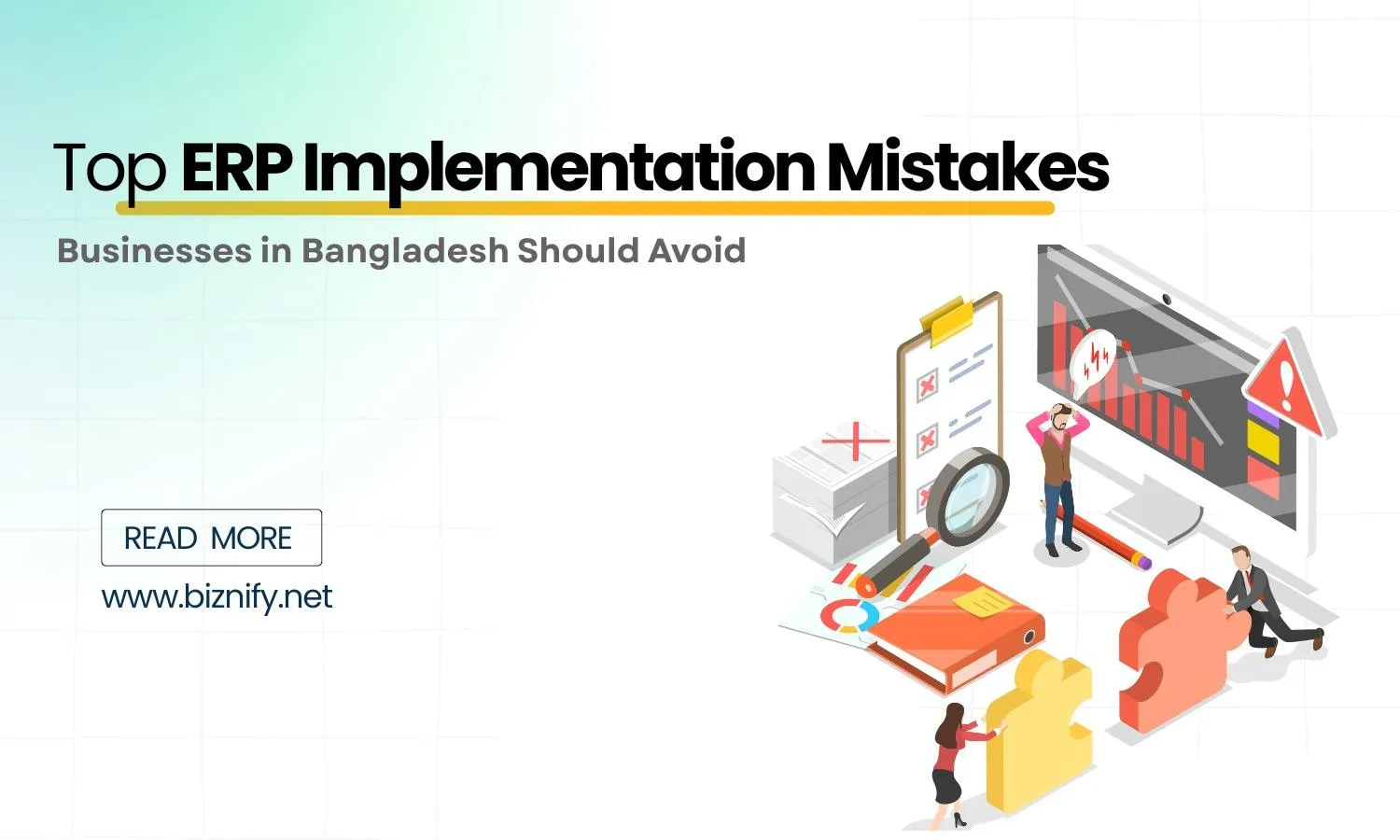
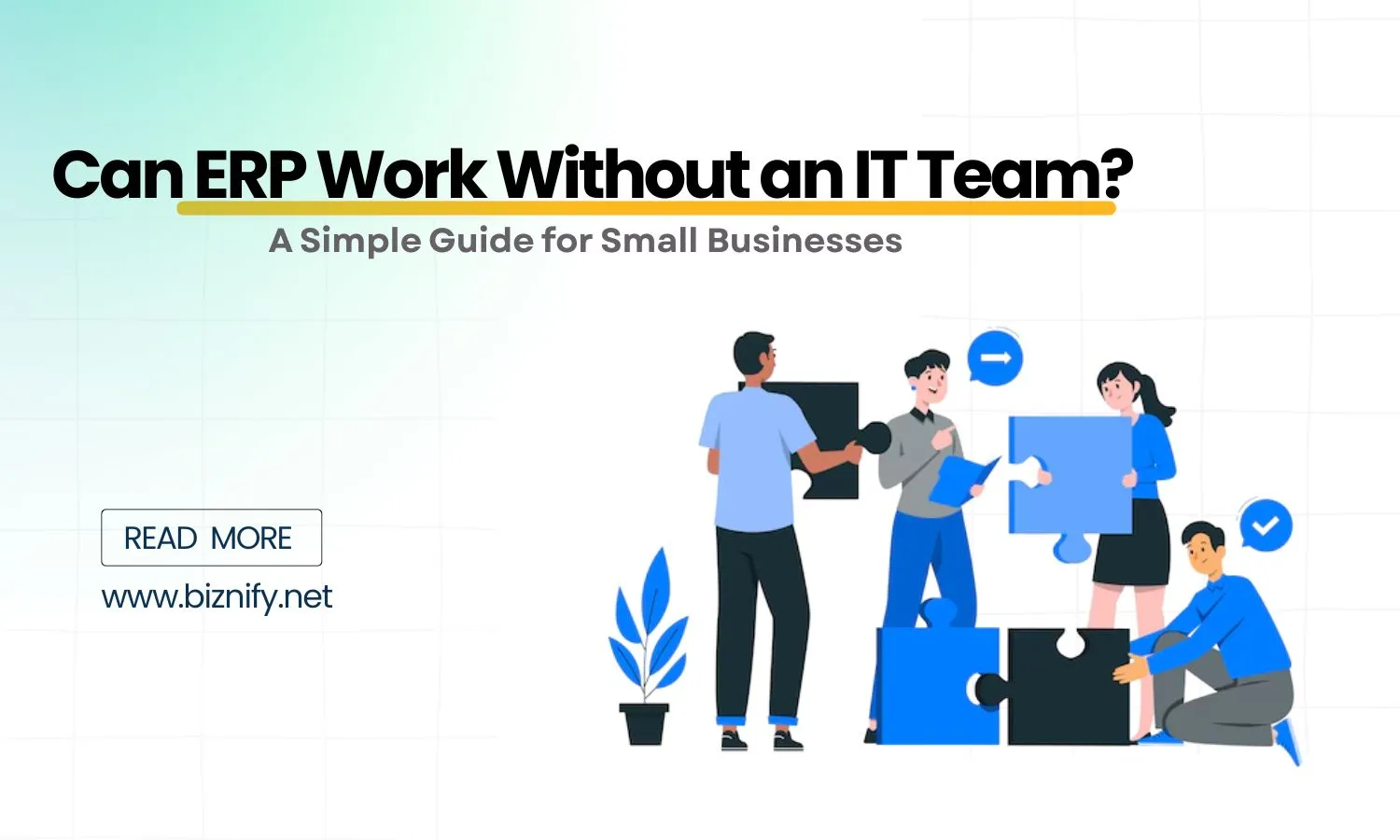
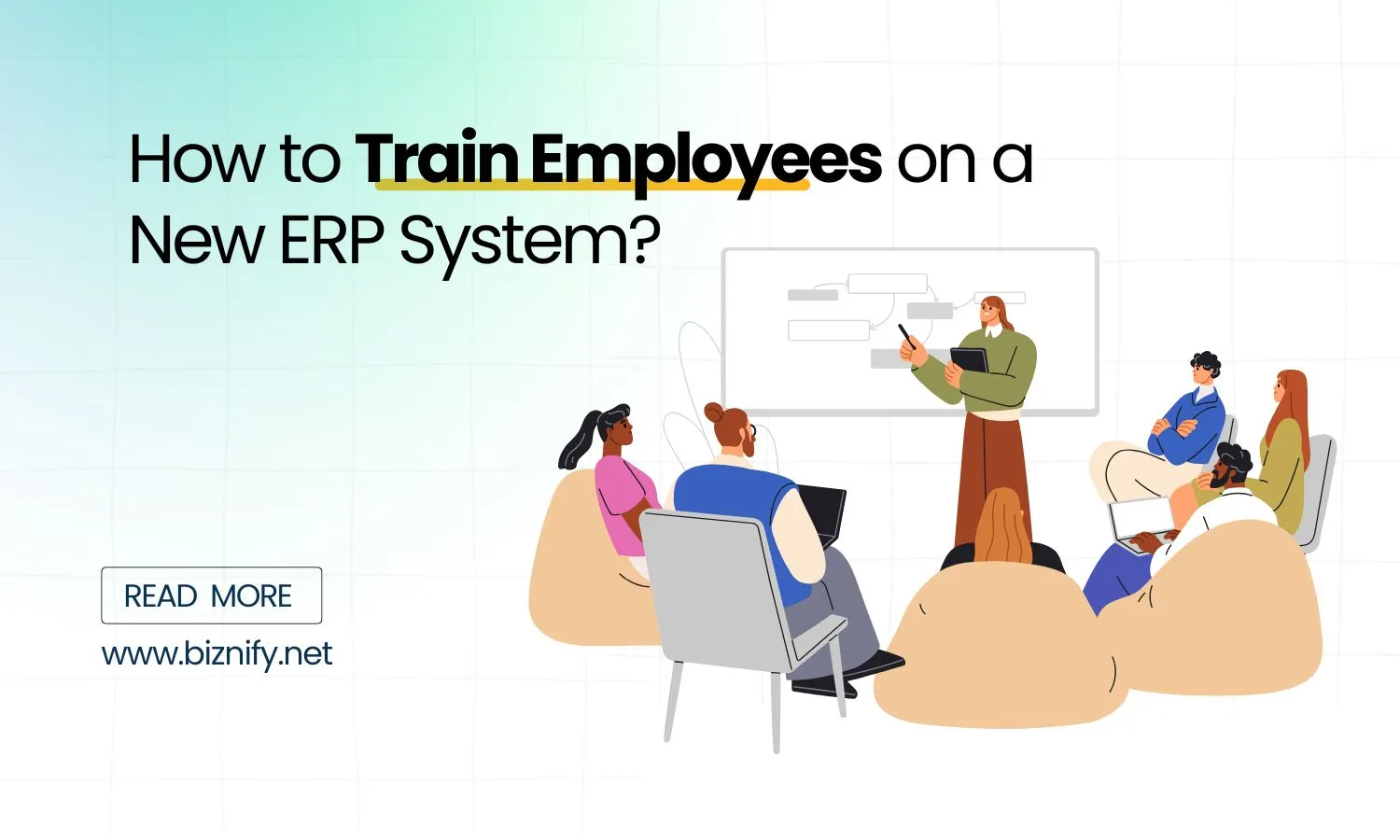
Just exploring ERP or unsure which modules you need? The Biznify team’s here with straight answers.